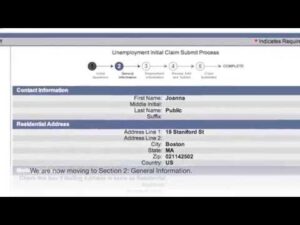Content
- Tips for working remotely amid COVID-19
- Remote work frequency before and after COVID-19 in the United States 2020
- Gender, Age, and the Experience of Remote Work
- States Where the Most People Teleworked Because of COVID-19
- Should You Work Remotely Even After the Pandemic? Here’s What to Know Before You Decide
- Take remote working to the next level with this Bali coworking camp

Amid the coronavirus outbreak, a majority of employed adults who say that the responsibilities of their job can be mostly done from home (55%) say they are currently working from home all of the time. Another 16% say they are doing so most of the time, while 12% say they are teleworking some of the time and 17% are rarely or never working from home. Among workers who are in the same job as they were before the coronavirus outbreak started, more than six-in-ten say they are as satisfied with their job now as they were before the pandemic and that there’s been no change in their productivity or job security. Even higher shares say they are just as likely now to know what their supervisor expects of them as they were before and that they have the same opportunities for advancement. One of the fastest, cheapest ways for employers and employees to reduce their carbon footprint and affect climate change is by reducing commuter travel.
Can I work remotely from anywhere?
A job being fully remote doesn't mean it's a work-from-anywhere job. Many fully remote jobs have a location requirement for a number of reasons, including: Legal and tax requirements: Certain laws and regulations may restrict where employees can work or where businesses can hire.
In contrast, job performance was related to the social-organizational aspect of leader–member exchange. Contrary to our expectations, family–work conflict was not related to remote work satisfaction. One possible explanation is that, when present, family–work conflict might delay or undermine work tasks without affecting satisfaction with remote work as a form of flexible work arrangement. Thus, future studies should better examine whether employees would recommend remote https://quick-bookkeeping.net/ work to others or work remotely themselves regardless of potential interference of family duties with their work. In addition, the patterns we found can be explained by the fact that remote work satisfaction is a subjective experience and thus more related to individual variables connected with remote work . In contrast, job performance is a more general concept that includes both home and office tasks and thus is more related to general work processes, such as LMX.
Tips for working remotely amid COVID-19
But this was exactly what had always irked Ms. Egziabher, 40, about her office, where she served as a project manager for a Texas food chain. No matter her productivity, her colleagues seemed to care primarily about the chitchat — what’d you do last weekend, where’d you get that purse? Ms. Egziabher, who is Black, felt that her white co-workers were fixated on who was jostling for entry to their in-group. During the pandemic, there was a level of camaraderie in remote work, Ahlquist says, not only within companies and households, but also among friends and within other social groups. Everyone was missing out on the casual social contact that came with “normal” day-to-day life and many tried to accommodate by doing more things virtually than ever before.

A remote work policy should either state a projected end date or provide for regular updates. Setting clear expectations, even if they change over time, will reduce uncertainty and confusion among employees. Many of Where Did You Work Remotely During Covid them have always wanted to test it as a way of expanding their reach or labor force. It’s not that people are going to permanently adopt this new format of work, but this experience will expand everyone’s capacity.
Remote work frequency before and after COVID-19 in the United States 2020
For instance, Teams displays the video feeds of only the four most recent people who spoke during a meeting. That’s quite low compared to Cisco Webex, which displays up to 25 streams at once, and Zoom, which displays up to 49. SKB carried out data analysis and interpretations were discussed with CEH, DP and NG.
This is unsurprising, as the role of a diplomat is highly dependent on trust and confidence developed via personal contact, and adjustment to the host country is based on understanding that country and its people, and involves meeting people and exploring the culture . We propose ensuring that those new to posts are given a tour and introduced to their teams . The difference in opinions here highlights the importance of individual choice and autonomy, and suggests that diplomatic, or similar, organisations could benefit from demonstrating flexibility and listening to the wishes of individual employees.
